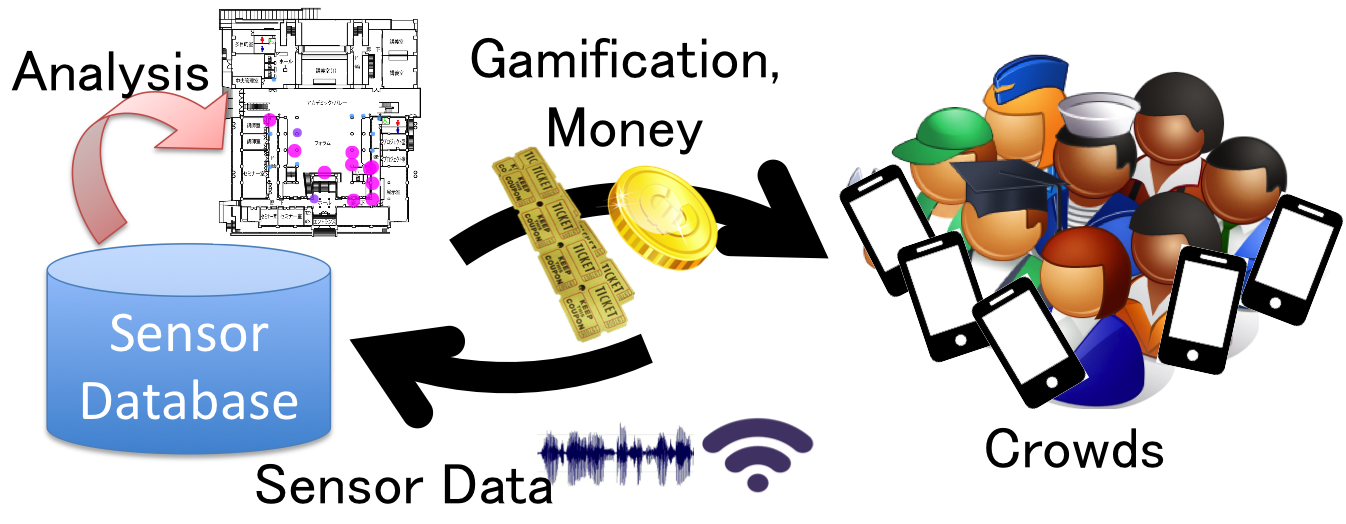Abstract
 The proliferation of smart phones makes it increasingly feasible to build crowdsensing systems that gather large-scale sensor data. One of the important applications of crowdsensing systems is location-based services such as enhanced local search and recommendation, games, and social network services. Crowdsensing collects sensory data from daily activities of users without burdening users, and the data size is expected to grow into a population scale. However, the quality of service is difficult to ensure for commercial use. Incentive design in crowdsensing with monetary rewards or gamifications is, therefore, attracting attention for motivating participants to collect data to increase data quantity. In contrast, we propose “Steered Crowdsensing”, which controls the incentives of users by using the game elements on location-based services for directly improving the quality of service rather than data size. For a feasibility study of steered crowdsensing, we deployed a crowdsensing system focusing on application scenarios of building processes on wireless indoor localization systems. In the results, steered crowdsensing realized deployments four times faster than non-gamified crowdsensing while having half as many data.
The proliferation of smart phones makes it increasingly feasible to build crowdsensing systems that gather large-scale sensor data. One of the important applications of crowdsensing systems is location-based services such as enhanced local search and recommendation, games, and social network services. Crowdsensing collects sensory data from daily activities of users without burdening users, and the data size is expected to grow into a population scale. However, the quality of service is difficult to ensure for commercial use. Incentive design in crowdsensing with monetary rewards or gamifications is, therefore, attracting attention for motivating participants to collect data to increase data quantity. In contrast, we propose “Steered Crowdsensing”, which controls the incentives of users by using the game elements on location-based services for directly improving the quality of service rather than data size. For a feasibility study of steered crowdsensing, we deployed a crowdsensing system focusing on application scenarios of building processes on wireless indoor localization systems. In the results, steered crowdsensing realized deployments four times faster than non-gamified crowdsensing while having half as many data.
This research is in collaboration with Professor Kashima, a professor at Kyoto University, who is an expert in Machine learning field for Crowd sourcing.
News
Our paper has been accepted for oral presentation at UbiComp 2014 (The 2014 ACM International Joint Conference on Pervasive and Ubiquitous Computing) on September, 2014, in Seattle, Washington, US.
Session: “Sensing the Crowd” 2014/9/17 9:00-10:30
Publications
Ryoma Kawajiri, Masamichi Shimosaka, Hisashi Kashima.
Steered Crowdsensing: Incentive Design towards Quality-Oriented Place-Centric Crowdsensing.
In Proceedings of the 2014 ACM International Joint Conference on Pervasive and Ubiquitous Computing (UbiComp 2014), pp.691-701, 2014.
DATASETS
People
Ryoma Kawajiri, Masamichi Shimosaka, Hisashi Kashima (Kyoto University)